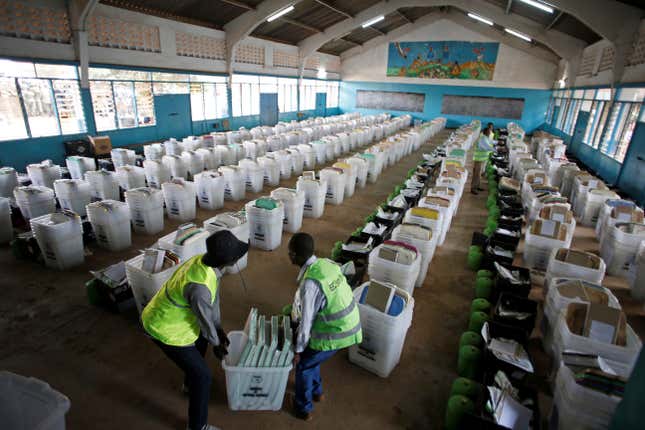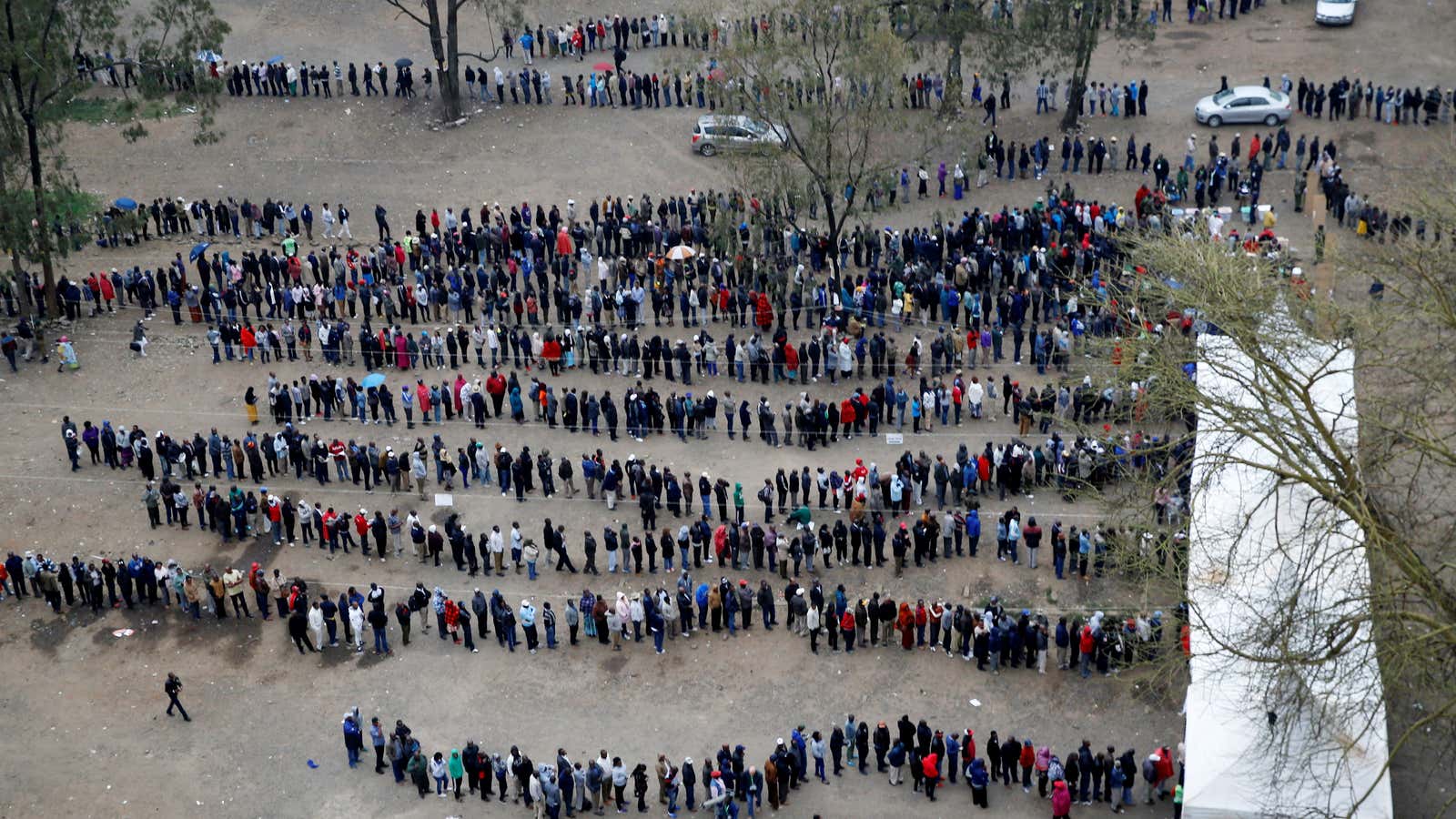Kenya’s election, which saw president Uhuru Kenyatta re-elected with 54% of the vote, has been marred by allegations of hacking, fraud, and violence—with the opposition claiming that hackers tampered with the election results. Presidential candidate Raila Odinga also rejected the results streamed by the electoral commission, calling them “fake” and fictitious.”
Yet, despite the tension and angry protests, the election has also been historic in its own way—introducing fresh faces into the national limelight. Kenyans were determined to make their voices count with more than 15 million people voting out of the 19.6 million registered voters. And while some were disappointed that the polls still reflected the politics of tribe and patronage, some emphasized the ambition and hope behind the vote.

The backing of young candidates
Kenya is a very youthful country, with the country’s median age estimated at just 19 years. Voters below the age of 35 also constitute 51% of its 19.6 million registered voters—with key presidential and gubernatorial candidates all working hard to win the youth vote.
Throughout the campaign, there were inspiring stories of young candidates like Simon Muturi, a 24-year-old, who campaigned on his bicycle and secured nomination through president Kenyatta’s Jubilee party. But the biggest breakthrough has been the election of underdogs like John Paul Mwirigi, a 23-year-old candidate who had been campaigning on foot and who defeated the ruling party’s candidate. After winning the Igembe South parliamentary seat, Mwirigi is set to be the country’s youngest lawmaker. In Nandi county, located in Kenya’s north rift valley, 34-year-old Stephen Kipyego Sang made history after winning the gubernatorial seat in the county. Sang was also Kenya’s youngest elected senator.
The election of the first female governors and senators
Women played a bigger role in this election. As voters, more women registered to vote than men in 21 of Kenya’s 47 counties, accounting for 9.4 million or 47% of voters. This election saw the first election of three female governors—former minister of devolution Anne Waiguru, Joyce Laboso, and Charity Ngilu. In Kirinyanga county Waiguru beat her opponent, Martha Karua another seasoned female politician, with 54% of the vote. Ngilu will be the first female governor of Kitui county in eastern Kenya, while Laboso clinched the Bomet county.
Kenya’s constitution maintains that women occupy a third of parliament seats but the government has been slow to enact the rule. Women won elected seats in Kenya’s legislature for the first time. In this election, three women will take elected Senate seats—Margaret Kamar of Uasin Gishu, Susan Kihika of Nakuru, and Isiolo’s Fatuma Dullo.
The first Somali woman elected to parliament
Sophia Abdi Noor made history by becoming the first woman from an ethnic Somali background to be elected to parliament. Noor won in Ijara constituency in northeastern Kenya, long considered one of the most marginalized and poorly-developed regions in Kenya. She was also the only woman aspirant in the region to contest for a parliamentary seat.
Since 2008, Noor had served as a nominated member of parliament and twice lost the contest for the Ijara constituency seat. Kenya’s constitution guarantees a position for women representatives in each of the nation’s 47 counties. But during the campaign, Noor said that she didn’t want to vie for the seat dedicated to women. “I leave the dedicated women seats to others and campaign against a handful of men,” Noor said. “I will win because people here are tired of men who only think of themselves.”
Kenya’s most prominent investigative journalist was elected
Editors, journalists, and television pundits left newsrooms in droves to vie for Kenya’s closely-contested elections. But it was the election of Mohammed Ali, a veteran investigative journalist, that drew the most attention. Ali ran as an independent candidate and won in the Nyali constituency in Mombasa county, an area filled with expensive hotels and tourist resorts.
Ali became a household name several years ago after he launched his television show Jicho Pevu, an investigative program that exposed crime and corruption in both government and private sectors. The former journalist had even received death threats in the past in order to deter him from his work. Ali was also part of a growing number of young people, including activists, who decided to run given the simmering disappointment among Kenyans with the current regime. Another journalist, Paul Katana, also won in Kaloleni constituency in Kilifi county along Kenya’s coast.
